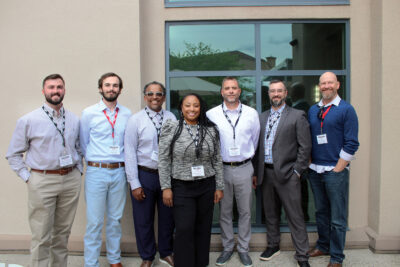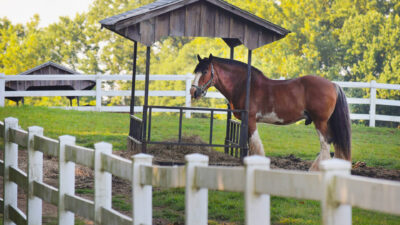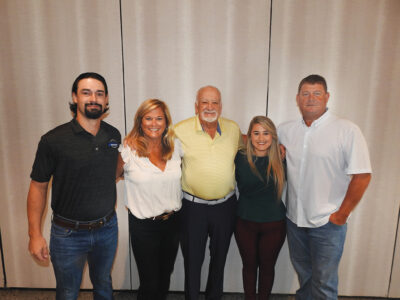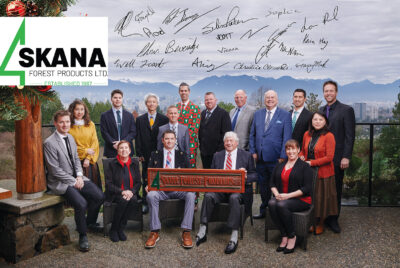By Deborah Wilbrink
Fort Collins, CO–Agricultural researcher Steve Schwartz and biology science graduate Curt Viehmeyer met while driving trucks for the Sears Trostel Lumber Co. in 1980. Sears Trostel was an established supplier of construction materials and lumber that had been in business since 1929, and Schwartz and two partners sensed an opportunity and acted upon it. They purchased the company from the Sears family in 1980, and a year later Viehmeyer bought-out one of the partners. The two of them eventually purchased the interests of the third partner.
“With big home centers already in town, we knew we would have to do something different, so we decided to expand the hardwood lumber portion of the business,” said Schwartz. “That visionary thinking got us to where we are today.”
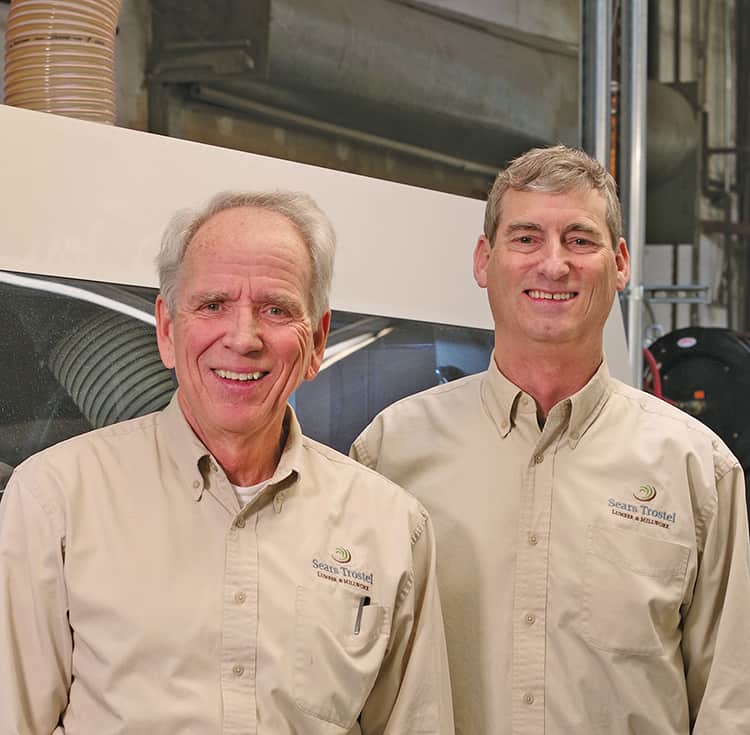
Sears Trostel co-owners (from left) Steve Schwartz and Curt Viehmeyer are pictured with a Weinig Powermat 1500 9-inch Moulder, recently purchased to increase production.
The new owners learned and rebuilt the company from the ground up. Through personal sacrifice, hard work, perseverance and the ‘golden rule’ they say they increased annual sales from $400,000 to over $13 million in 20 years.
“Business is dramatically increasing,” said Schwartz, the president of Sears Trostel who also oversees sales and marketing. “We continue to expand our customer base through direct sales and social media, and we have launched into more Softwood lumber in the past three years. We’re involved in looking for new vendors all the time, primarily in Western Softwood.”
After 35-40 years of buying, Schwartz feels they have a pretty good handle on sourcing most domestic hardwoods as well as tropical and European hardwoods. The increase in Softwood demand was demonstrated by the purchase of 150,000 board feet of Softwood lumber last year. Sears Trostel distributes and re-manufactures Western Red Cedar, Inland Red Cedar, Eastern White Pine, Ponderosa Pine, Douglas Fir, and Western Hemlock—in many grades, dimensions and patterns.
In 2019 Sears Trostel purchased more than 1.1 million board feet of hardwood lumber, and sold the same amount, primarily through manufacturing and distribution of S4S hardwood dimension, mouldings, paneling, siding, randomwidth random-length lumber, and stair treads. Providing products in a wide variety of wood species, most are FAS & BTR and in multiple thicknesses, starting at 4/4 and ranging up to 16/4. Hardwood lumber species include red and white oak, alder, white ash, yellow birch, cherry, hard maple, hickory, poplar and walnut.
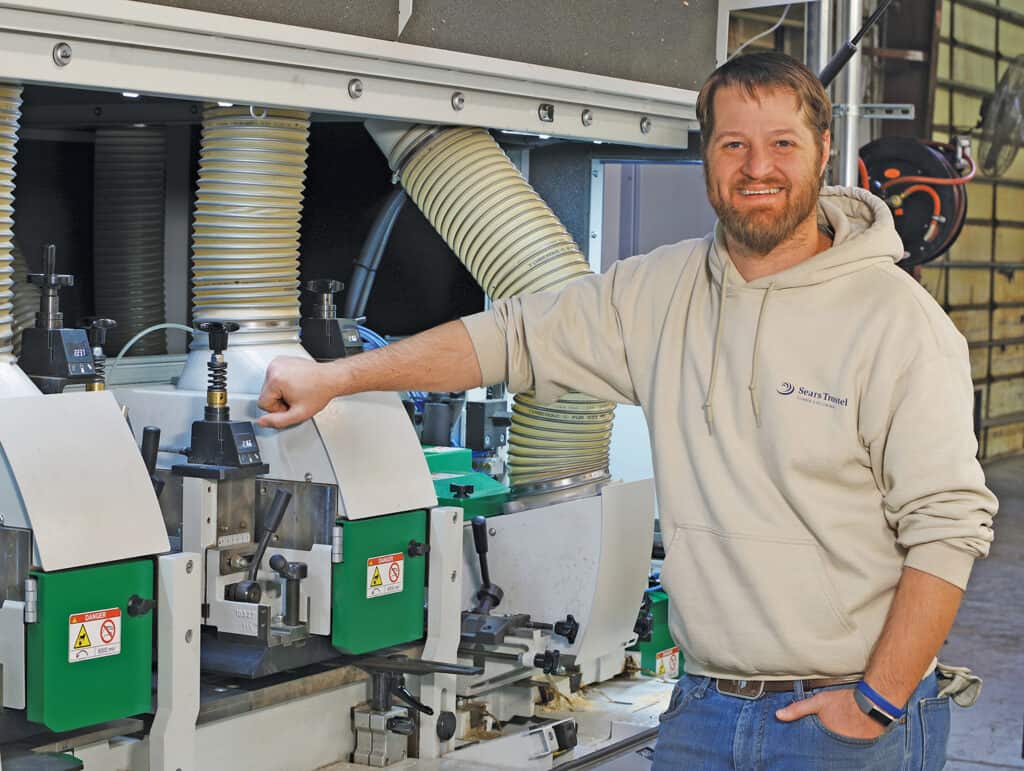
Trevor Jones is the production manager for the SearsTrostel manufacturing facility where Lean Manufacturing principles have increased productivity dramatically.
Jason Wilson, the company’s purchasing agent, sources lumber from a variety of sawmills, concentration yards, wholesalers, and importers.
A niche for Sears Trostel, which accounts for 10 percent of the lumber sold, is Forest Stewardship Council (FSC) certified lumber. The FSC is on the cutting edge of responsible forest management worldwide, maintaining sustainable uses of hardwood and Softwood lumber. In 2019, Sears Trostel supplied FSC-certified wood products to many commercial and government projects throughout Colorado and Wyoming.
“Basically, we treat our 48 employees, our suppliers, and our customers the way we want to be treated. We deal in an honest manner, establish and meet expectations, and develop good relationships,” according to Viehmeyer. Employees and staff consider themselves consultants for customers—whether building a small project or working up a large bid.
Sears Trostel occupies two Fort Collins locations: a 38,000-square-foot manufacturing facility and a 22,000-square-foot retail store and warehouse. Together, the two facilities house more than $1,000,000 worth of wood products.
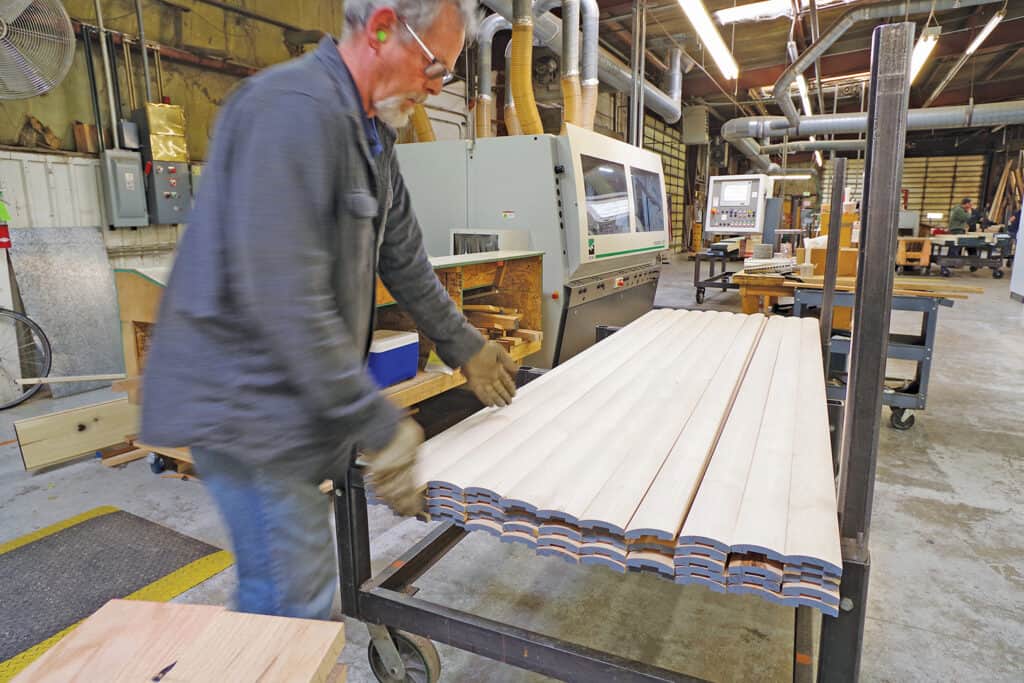
Pictured is a maple chair rail manufactured at SearsTrostel on the Weinig moulder..
“We’re seeing more specialty projects,” said Viehmeyer, the general manager of Sears Trostel. “We manufacture moulding but now we’re working on high-end ones.”
Value-added products are 70 percent of the company’s sales, with lumber and hardwood plywood making up the 30 percent balance. Those value-added products are distributed throughout Colorado and Wyoming to architectural millwork companies, cabinet shops, fixture companies, furniture manufacturers, door shops, retail, and contractor lumberyards.
Viehmeyer manages the marketing for the company’s retail store and directs the social media for the company, too. Facebook, LinkedIn, Instagram, and email campaigns are recognized as key components to connecting with younger customers.
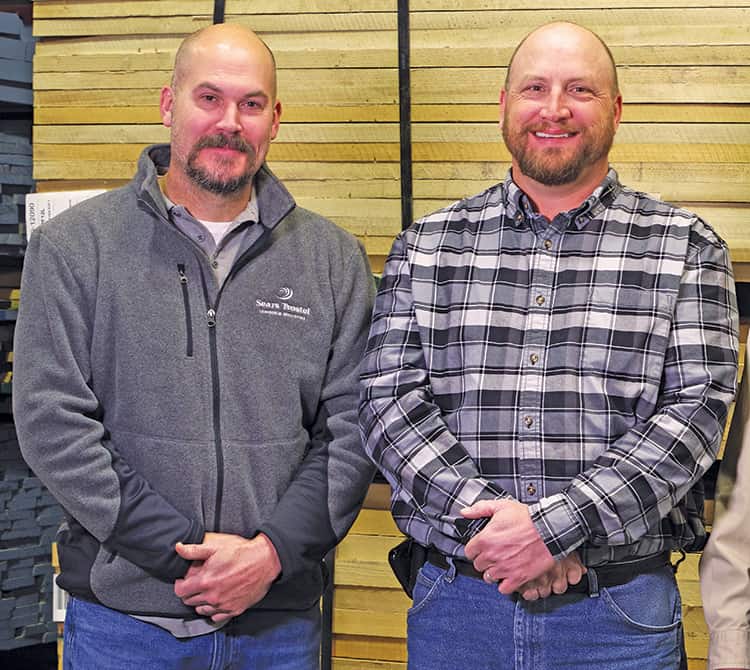
(From left): Sears Trostel’s Purchasing Agent, Jason Wilson, and Operations Manager, Carl Herrmann.
How have these two men, with their mutual interest in biology, become successful industry insiders? They continually practice integrity and apply business research.
Operations Manager Carl Hermann is now in his 26th year at Sears Trostel in that position. On the side, Hermann plays guitar and sings in the rock band, Atomic Pile Drivers. “We can watch him perform in a totally different role than at work,” Schwartz remarked.
Creativity in other fields is considered a plus at Sears Trostel, as it can inspire new approaches for the lumber business.
“Knowledge and creativity are company strengths. We don’t just do the same thing over and over again. We’re willing to explore new methods and techniques that deliver value to our customers,” Viehmeyer said. “For example, in 1999, we struggled with long lead-times and quality issues that showed we weren’t doing something correctly. We researched and trained with the concept of ‘Lean Manufacturing’. We shut down the plant and moved machines around to put them in more logical and efficient order. Eliminating waste allowed us to increase output, decrease number of employees, and improve our quality.”
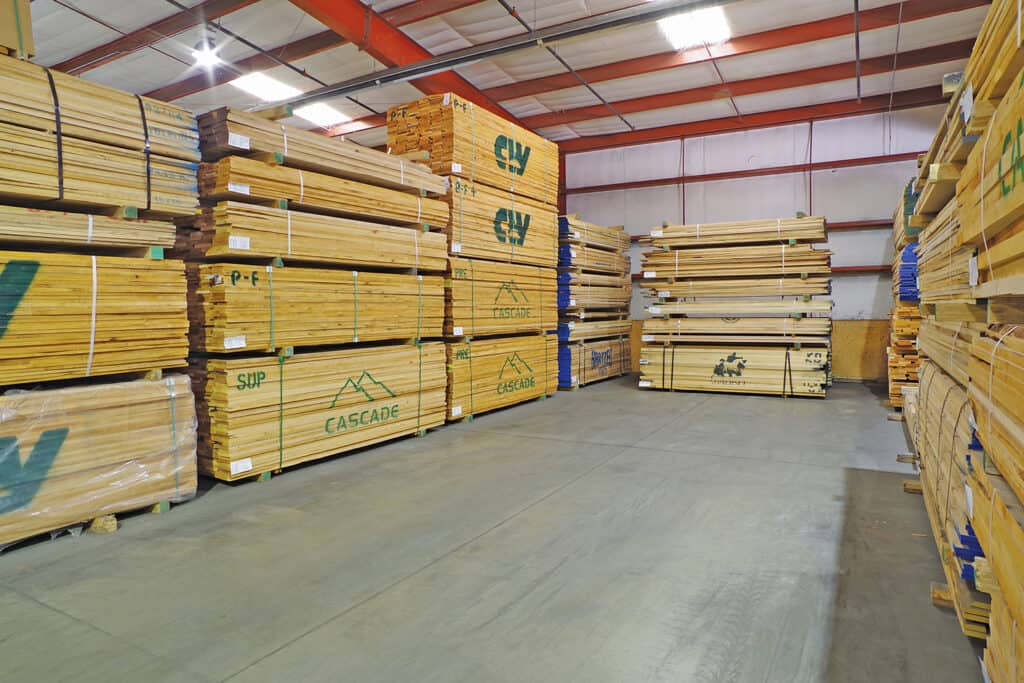
Sears Trostel’s two facilities house over $1 million in Softwood and hardwood lumber and specialty wood products.
Lean Manufacturing principles proved beneficial to customers, enabling Sears Trostel to increase sales, shorten and meet delivery dates, and increase profit. Using the most efficient tools is part of the strategy. The company recently purchased two Weinig Powermat 1500 moulders with HSK tooling that are interlinked with the tooling room. Moulder set-up time was reduced by 75 percent with the new technology. With the new moulders in place and the efficient management style of production manager Trevor Jones, the manufacturing facility produced over 2 million linear feet of moulding in 2019.
During and after the 2008 recession, the company faced many challenges. Business plummeted 71 percent. Just before the downturn, a snowboard manufacturer approached the company.
“They wanted us to produce snowboard blanks,” Schwartz remembered. “They wanted blocks made of lightweight wood; the poplar they were using was too heavy. I began searching for the ideal wood. At an NHLA convention, I ran into representatives from Collins. They were marketing Pacific Albus, a plantation-grown hybrid poplar with characteristics of aspen and cottonwood. It was an Ah-Ha moment. I submitted the samples to this customer, and we secured his business. We bought over 800,000 board feet of Albus over a period of 10 years. It helped us survive the recession.”
Experience led to the knowledge that delays are a problem in the construction industry, and Sears Trostel does everything possible to ensure that there are no delays in delivery of materials.
“We send our customers confirmations with the dates on them. They get the order on that day or earlier 99 percent of the time and that saves customer’s money,” said Schwartz. “The ability to deliver ‘ontime’ has grown our business over the last few years.”
A recent project involved helping a millworker in Denver. “The vendor was on a very tight schedule during the Thanksgiving holiday. It was difficult,” Schwartz said. “We had to produce a finished moulding from 2×12 C&Btr Douglas Fir into a custom pattern in 24-foot lengths, then subcontract the hand hewning. We met their requirements with quality work—and they met their deadline. The customer was very pleased with our performance.”
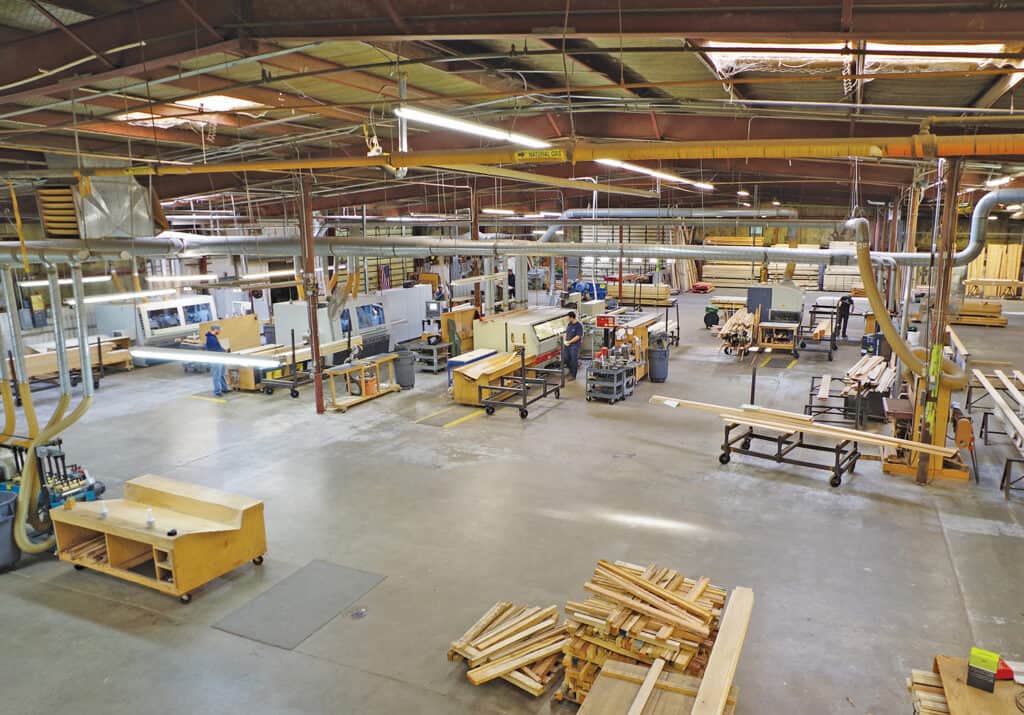
This is Sears Trostel’s 38,000-square-foot manufacturing facility.
Though Sears Trostel is noted for producing finished mouldings, the company recently churnedout Eastern White Pine with a re-sawn face for a Denver architectural millwork firm. “The wood was for a school whose owners are using corrugated tin along with the re-sawn lumber for a rustic appearance,” Viehmeyer said. “We met with the firm and the general contractor in our office. While sitting down to discuss their needs, we produced samples for them to show the owner. They got the look they wanted.”
Sears Trostel strives to meet or exceed customer expectations through sourcing the right lumber, custom work, and efficient, dependable production. Viehmeyer emphasized, “Over the years and through the school of hard knocks we’ve developed business practices that work. We have learned so much about the industry and how to run the business. We grew the business organically, without any outside help.” The two former college students-turned-truck-drivers have invested the last 40-years growing in expertise at Sears Trostel Lumber Co.
Learn more at www.sears-trostel.com and on Facebook at www.facebook.com/SearsTrostelLumber.

